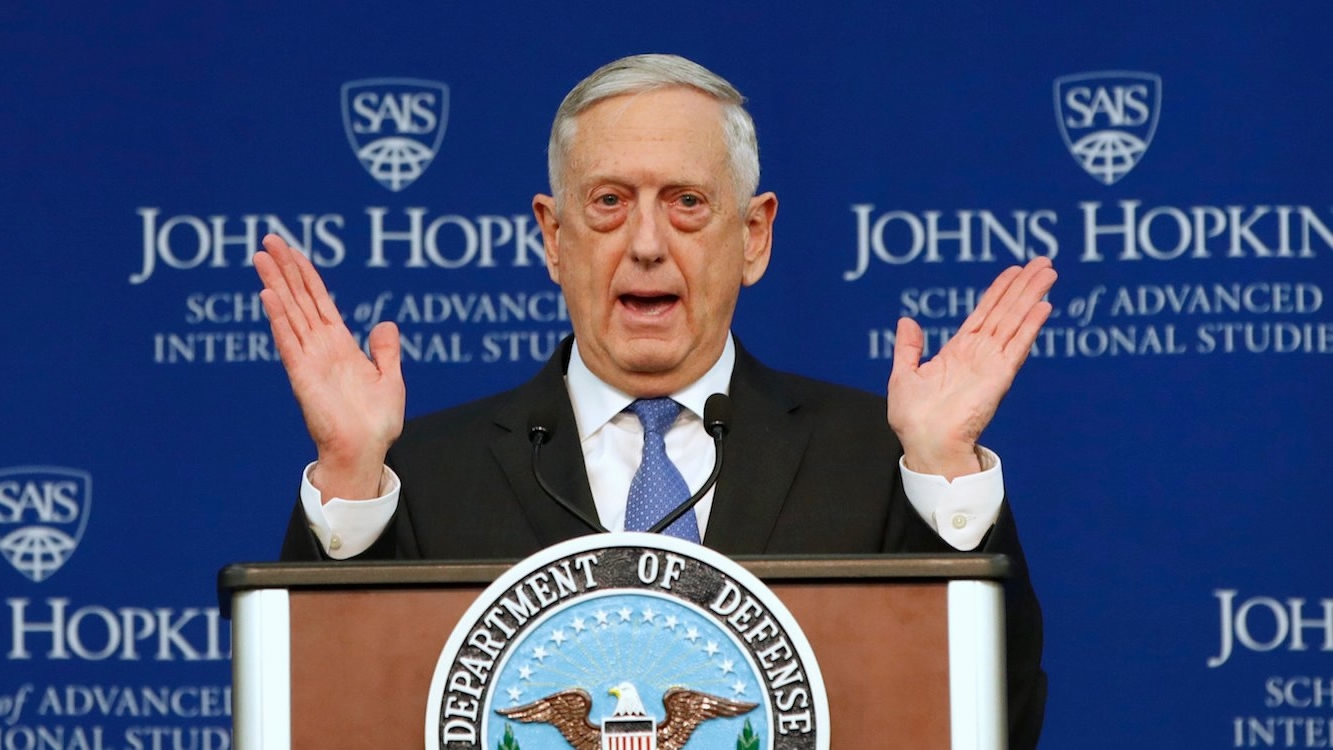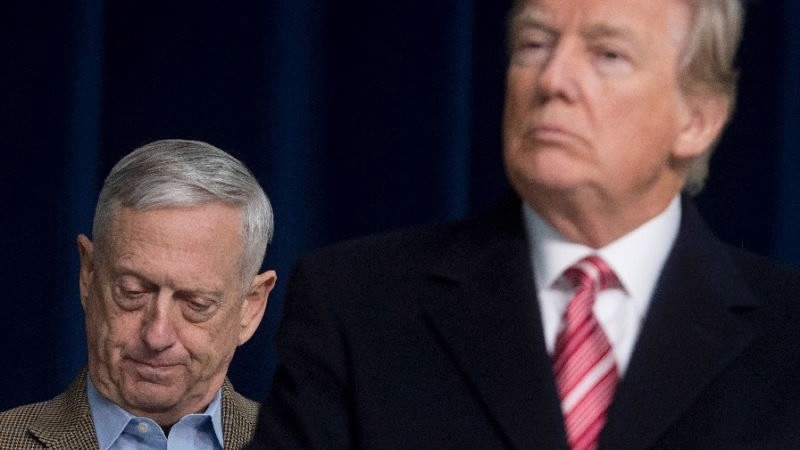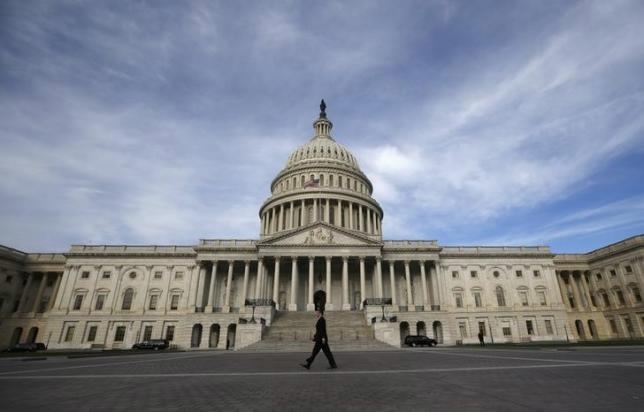
Politics
09:33, 20-Jan-2018
US national security shift main concern from terrorism
CGTN

The US Defense Department shifted its main focus of national security from anti-terrorism to competition among major powers, according to US Defense Secretary James Mattis, as he unveiled a summary of the new National Defense Strategy Report on Friday.
"Though we will continue to prosecute the campaign against terrorists that we're engaged in today, the great power competition, not terrorism, is now the primary focus of US national security," Mattis said in his opening statements at the Johns Hopkins School of Advanced International Studies.
The new defense strategy is in line with the rhetoric of Trump's National Security Strategy released last month, which, similarly, highlights the role of China and Russia in the global security environment.
The US faced "growing threats from revisionist powers as different as China and Russia," Mattis said, while also pointing a finger at Iran and the Democratic People's Republic of Korea (DPRK) for their threats to peace.

US Defense Secretary Jim Mattis (L) appeared with President Donald Trump at a retreat with top Republicans at Camp David in Maryland earlier this month. /AFP Photo
US Defense Secretary Jim Mattis (L) appeared with President Donald Trump at a retreat with top Republicans at Camp David in Maryland earlier this month. /AFP Photo
While the US was "still strong," the defense secretary said, its competitive edge had "eroded in every domain of warfare – air, land, sea, space and cyberspace – and is continually eroding."
The strategy will have three primary parts, Mattis said – building a more lethal force, strengthening alliances and attracting new partners, and a reformation of the Department of Defense for greater performance and affordability.
The Pentagon's national defense strategy seeks to increase the size of the military, improve its readiness and work with allies – all while operating across multiple theaters including in Europe, the Middle East and Asia.
Appealing to Congress, he said: "No strategy can survive without predictable funding. As hard as the last 16 years [that is, since the 9/11 attacks] have been, no enemy has harmed the US military more than defense spending caps and sequestration."
Referring to the current wrangle in the Senate over a bill to fund federal agencies temporarily, he said a shutdown would have an impact on military operations.

The US Capitol Building in Washington, DC /Reuters Photo
The US Capitol Building in Washington, DC /Reuters Photo
The document makes no mention of the figures and details of the Department of Defense in strengthening military construction.
US media said that the biggest changes from the previous version in the Obama administration are that the main concern shifted from anti-terrorism to strategic competition among countries, and from maintaining the strategic stability between China and Russia, turning to see China and Russia as rivals.
Elbridge Colby, US deputy assistant secretary of defense for strategy and force development, said before the release that the report is not about tactics of confrontation but recognizing reality to strengthen its own strategy.
The announcement sparked a backlash from Russian Foreign Minister Sergei Lavrov, who branded the new US strategy as "confrontational."
"It is regrettable that instead of having a normal dialogue, instead of using the basis of international law, the US is indeed striving to prove their leadership through such confrontational strategies and concepts," Lavrov told a news conference at the UN.

SITEMAP
Copyright © 2018 CGTN. Beijing ICP prepared NO.16065310-3
Copyright © 2018 CGTN. Beijing ICP prepared NO.16065310-3